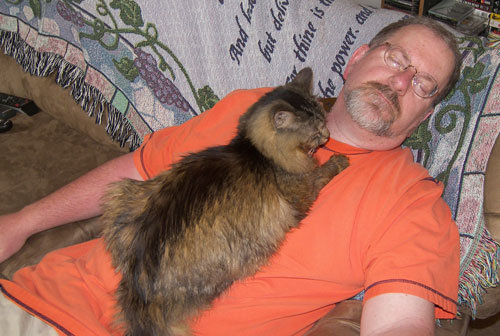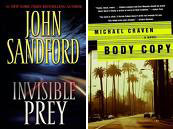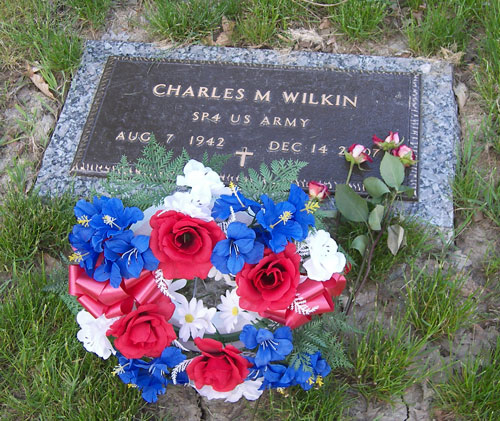 “The Forever War” is a great piece of war reporting. Dexter Filkins, a New York Times reporter, entered Afghanistan with US troops, and in 2003 entered Iraq with the US invasion. He spent seven years covering those wars, and helps us see what he saw.
“The Forever War” is a great piece of war reporting. Dexter Filkins, a New York Times reporter, entered Afghanistan with US troops, and in 2003 entered Iraq with the US invasion. He spent seven years covering those wars, and helps us see what he saw.
This isn’t an anti-war book, nor a pro-war book. Nothing partisan about it. It’s just reporting of a very personal nature–progressive journalism, it’s called, where the reporter is part of the story. We see what Filkins sees. He doesn’t pass judgement, doesn’t analyze. Just observes,experiences, and reports.
The book almost reads like a novel, a series of scenes. He’s talking to a Northern Alliance commander. He’s with US Marines amidst a desperate firefight in Faluja. He’s in the Green Zone. He’s in the home of an Iraqi official. He’s accompanying Ahmed Chalabi to Teheran. Story after story. Beautiful, descriptive, yet strangely sparse writing.
The first 70 pages take place in Afghanistan. This, to me, was the best part of the book. He describes the constantly shifting alliances, a long tradition in the Afghan history of war. One day an Afghan would be commanding Taliban troops in some town. The next, he and his men would be part of the Northern Alliance, storming that same town to oust the Taliban.
“Battles were often decided this way not by actual fighting, but by flipping gangs of soldiers….The fighting began when the bargaining stopped, and the bargaining went right up until the end. The losers were the ones who were too stubborn, too stupid, or too fanatical to make a deal. Suddenly they would find themselves outnumbered, and then they would die.”
He described how scary, how ruthless, the Afghans cold be.
“One of them would be sitting across form you in a restaurant, maybe picking at a kebob, looking at your from across the centuries…and you knew he’d just as soon kill you as look at you. Dumb as a brick, but that hardly mattered. Great cultures are like that. Always have been. The Greeks, the Romans, the British: they didn’t care what other people thought. Didn’t care about reasons. Just up and did it.”
Filkins finds himself in a soccer stadium, where a thief’s hand is amputated, and where another man is executed as part of a sanctioned family revenge. The world Filkins reveals in Afghanistan is very foreign, and you realize what we’re up against.

Above: Filkins (left) with some US troops.
But then the Iraq war comes calling, and Filkins transfers there. The remaining 250 pages take place in Iraq. Some things that stand out to me:
- Chalabi, whom I’ve taken as a fool, is really a brilliant, hard-working guy–and probably in the pocket of the Iranians.
- Suicide bombing happened a whole lot more than we realize, at least in the earlier years. It was practically a daily occurrence–if not far more frequent than that.
- We see, very clearly, the hatred Iraqis have for Americans. Even if they hate the insurgents, they want the Americans to leave their country.
- We clearly see the constant fear that follows Iraqis. One woman said that under Saddam, you just had to watch what you said, and you would be okay. But now, there are many ways to die, and many people who want to kill you for many different reasons.
- Many times in the book, Filkins barely escapes being killed, whether in a battle or, more often, at the hands of mobs or fanatical insurgents.
- “There was no entering an Iraqi home, no matter how hostile your relationship with its host, without being embraced by a hospitality that would shame anything you could find in the West.”
- You see a lot, a LOT, of death. Sometimes gruesome death.
The best parts are when Filkins is with US troops, whom he usually refers to as “the kids.”. I remember impressions from the books I read about Vietnam; our troops seemed undisciplined, unruly, easily drawn to drugs and alcohol, unkempt, lacking in conviction about their cause. The US troops in Iraq, by comparison, come across as very professional. They’re still kids, many of them, and war can bring out the worst in people. But Filklins paints a picture of US troops who are well-trained, disciplined, and superb at what they do. One of them takes a bullet for Filkins.
“There wasn’t any point in sentimentalizing the kids; they were trained killers, after all. They could hit a guy at 500 yards or cut his throat from ear-to-ear. And they didn’t ask a lot of questions. They had faith, they did what they were told, and they killed people. Sometimes I got frustrated with them; sometimes I wished they asked more questions. But…out there in Faluja, in the streets, I was happy they were in front of me.”
“The Forever War” is a remarkable book, and I recommend it highly.












